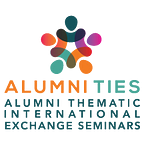Opposing Racism through the Lens of Franco-American Experiences
by Eileen Angelini
Our small grant project, “Opposing Racism through the Lens of Franco-American Experiences,” grew out of the Alumni TIES seminar on American Identity: Exploring our Collective Memory, Heritages, and Histories in Minneapolis, Minnesota. My co-presenter Eva Wingren and I connected because we both look at how whiteness was historically constructed. Ancestors of many white Americans lost meaningful religious and ethnic identities in order to gain access to privilege and avoid persecution. Learning the nuances of how white people became white is valuable for strengthening present-day social justice efforts.
Our project built upon Ben Levine’s documentary Réveil: Waking Up French (for which I wrote the teacher’s guide). We featured Franco-American experiences as a framework for teaching oral history collection and as a jumping off point for using family narratives to explore stories of white dissent from white supremacy and to deepen participants’ sense of commitment to anti-racism. We based our framework on the fact that Franco-Americans occupy a unique position among European immigrants who are now considered white in America, however, even today’s students of French do not well understand their stories. Their second-class status and persecution by the Ku Klux Klan (KKK) highlights aspects of historical white supremacy that are important for those who fight today’s white supremacist groups.
For the workshops, I showed selections from Réveil that deal with attacks by the Ku Klux Klan (KKK) on Franco-American communities in the Northeast. This complicates the narrative of the KKK as a Southern problem and of Black people as being the only target of their violence. KKK members were also concerned with Protestant supremacy, held prominent political office, and operated openly in the northeast. Meanwhile, poor migrant workers from Quebec and New Brunswick experienced similar struggles as today’s immigrants, including identitarian violence, being used as strike-breakers to undermine worker solidarity, and punitive immigration policies cutting off their ability to return home. In the second half of the workshop, Eva drew upon her experience with Showing Up for Racial Justice (SURJ), an organization working to bring more white people into multi-racial fights for racial and economic justice. As an entry point into anti-racist action, she encouraged participants think about their family histories and their stake in social justice issues today.
In early November 2022, Eva and I did a series of in-person workshops at universities throughout the upper Midwest (University of Wisconsin-Oshkosh, University of Wisconsin-Madison, University of Northern Iowa-Cedar Falls, and DePaul University). The upper Midwest also saw historic French exploration, if not settlement, so our focus centered on drawing out any existing Franco-American communities, as had happened when I presented in the Northeast. At UNI-Cedar Falls, the story of KKK crimes committed against Franco-Americans touched one student named Cody so much that he uncovered some family history of his own. Cody never knew that his grandmother had to wear a winter coat all the time when walking to school to avoid KKK attacks because of her Franco-American Catholic school uniform for St. Bernard’s Church. I then offered to work with UNI-Cedar Falls on expanded content using the film and teacher’s guide. At the workshop hosted by the Chicago/Northern Illinois chapter of the American Association of Teachers of French (AATF) at DePaul University, student reporters from Northwestern University attended the workshop and asked to do an interview with Eva about her work with SURJ. In addition, the AATF-Chicago/Northern Illinois Newsletter featured the workshop.
Given the success of our Midwest workshops and the post-workshop publicity they received via the AATF-Chicago/Northern Illinois Newsletter and the Retro Report Education Newsletter (as a Retro Report Teacher Ambassador, Filiz Yargici, Education Manager at Retro Report, invited me to submit an essay), Eva and I began to receive requests to do more workshops. Eva and I were thus very grateful that Alumni TIES extended the length of the grant period.
In an effort to accommodate as many requests as possible, we began to offer online workshops in Spring 2023. Our first online workshop was at Occidental College and for participant interaction, Mentimeter worked extremely well. We also conducted hybrid workshops, with me presenting in person and Eva, virtually. Our first hybrid workshop was at Brown University. Extremely special was the participation of Beatrice, a French-Canadian student (mother is Acadian and father is Quebecois), who thanked me profusely for presenting on Franco-Americans and who added several insightful personal perceptions to the discussion.
Our next virtual workshops were with the University of Nebraska-Omaha and the University of Nebraska-Kearney. One highlight from Omaha included a follow-up email from Olaf Ernst Bohlke (Creighton University) who asked me about future virtual workshops where we would screen Réveil. I replied that I would keep him posted and offered that if he wanted a workshop conducted for Creighton University, we would offer a virtual option even after the grant period ended. A highlight from the University of Nebraska-Kearney virtual workshop was that one attendee was from Lugano, Switzerland. This attendee found the registration information for the workshop via Eventbrite. It was thus exciting that the workshop garnered international attention. Our next workshop will be for the AATF-Central New York in April 2024.
Eileen Angelini is an alumna of the 2016 Fulbright Specialist Program in Canada and of the 2010 Fulbright Distinguished Chairs Program in Canada. She participated in the March 2022 Alumni TIES seminar on American Identity: Exploring Our Collective Memory, Heritages, and Histories in Minneapolis, Minnesota.
Alumni TIES is sponsored by the U.S. Department of State with funding provided by the U.S. Government and supported in its implementation by World Learning, in partnership with the Office of Alumni Affairs of the Bureau of Educational and Cultural Affairs (ECA).
